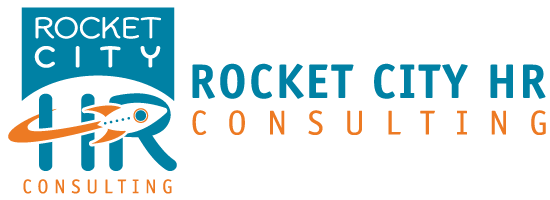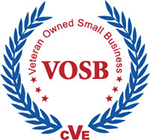California legislators have certainly been busy recently. If you have employees in California, here are some employment law updates taking effect in 2024:
- AB 1076 and SB 699 (Non-Compete Agreements) – effective 1/1/2024
- SB 553 (Workplace Violence Prevention Plans) – effective 7/1/2024
- SB 616 (Paid Sick Leave) – effective 1/1/2024
- SB 700 (Cannabis Use) – effective 1/1/2024
- SB 848 (Reproductive Loss Leave) – effective 1/1/2024
A quick synopsis of each law is provided below:
AB 1076 and SB 699 (Non-Compete Agreements)
Effective 1/1/24. AB 1076 specifies that California’s statutory provision voiding noncompete contracts applies to any noncompete agreement in an employment context or an employment contract, no matter how narrowly tailored, that does not satisfy specified exceptions. California’s Unfair Competition Law (UCL) makes various practices unlawful and makes a person who engages in unfair competition liable for a civil penalty.
AB 1076 also makes it unlawful to include a noncompete clause in an employment contract or to require an employee to enter a noncompete agreement (that does not satisfy specified exceptions). Employers must notify current and former employees in writing by February 14, 2024, that any noncompete clauses or agreements are void.
SB 699 establishes that any contract that is void under California’s non-compete prohibition is unenforceable regardless of where and when the contract was signed. Employers or former employers are prohibited from attempting to enforce a contract that is void regardless of whether the contract was signed, and the employment was maintained, outside of California.
SB 553 (Workplace Violence Prevention Plans)
Effective 7/1/24. SB 553 requires all employers, with few exceptions, to design, implement, and maintain workplace violence prevention plans (“WVPP”). Employers must designate the person responsible for implementing the program, identify and correct hazards through periodic inspections, train employees on hazards, and maintain records of incidents. It also requires employers to obtain the active involvement of employees and any unions in developing and implementing the plan and in designing and implementing training.”
The law specifically requires employers to train employees on the law’s definitions and requirements, the WVPP itself, documentation required, how to report incidents and concerns, and ways employees can participate in the WVPP’s development and implementation.
Employers must also maintain records including a violent incident log, employee WVPP training, and workplace violence investigations. Employers must conduct an investigation after incidents of workplace violence and for employee concerns of workplace violence; the results must be communicated to the employee.
SB 616 (Paid Sick Leave)
Effective 1/1/24. Amends California Labor Code sections 245.5, 246, and 246.5. Expands mandatory paid sick leave to 40 hours or 5 days for employees. Employers can accomplish this in the following ways:
- The employee accrues 1 hour of sick leave for every 30 hours worked
- The employee receives an upfront allotment of 40 hours or 5 days of paid sick leave (whichever is greater) upon hire and annually thereafter (no carryover or accrual of sick leave is required)
- The employee accrues sick leave at a rate other than 1 hour of sick leave for every 30 hours worked, provided the accrual is regular and results in the accrual of no less than 24 hours or 3 days of sick leave by the 120th day of employment and no less than 40 hours or 5 days of sick leave by the 200th day of employment.
SB 700 (Cannabis Use)
Effective 1/1/24. AB 2188 makes it unlawful for an employer to discriminate against a person in hiring, termination, or any term or condition of employment, or to otherwise penalize a person, for either:
- the person’s off-duty cannabis use away from the workplace
- the results of an employer-required drug screening test that has found the person to have non-psychoactive cannabis metabolites in their hair, blood, urine, or other bodily fluids.
Employees may ban possession or use of marijuana on the job and may maintain a drug-free and alcohol-free workplace. An employer can refuse to hire an applicant based on a scientifically valid pre-employment drug screening conducted through methods that do not screen for non-psychoactive cannabis metabolites and may use tests that identify the presence of tetrahydrocannabinol (THC) in an individual’s bodily fluids.
AB 2188 does not apply to applicants or employees hired for positions that require a federal background investigation or security clearance. The law also does not preempt state or federal laws that require applicants or employees to be tested for controlled substances as a condition of employment, to receive federal funding or federal licensing-related benefits, or to enter into a federal contract.
SB 848 (Reproductive Loss Leave)
Effective 1/1/24. SB 848 provided that an employer must grant a request by an eligible employee to take up to 5 days of reproductive loss leave following a reproductive loss event. A “reproductive loss event” means the day or the final day of a failed adoption, failed surrogacy, miscarriage, stillbirth, or an unsuccessful assisted reproduction.
Leave must be taken within 3 months of the event. A maximum of 20 days off must be granted if an employee experiences multiple reproductive loss events within a 12-month period. In the absence of an existing policy, the reproductive loss leave may be unpaid, however, an employee may use accrued and available paid sick leave.







